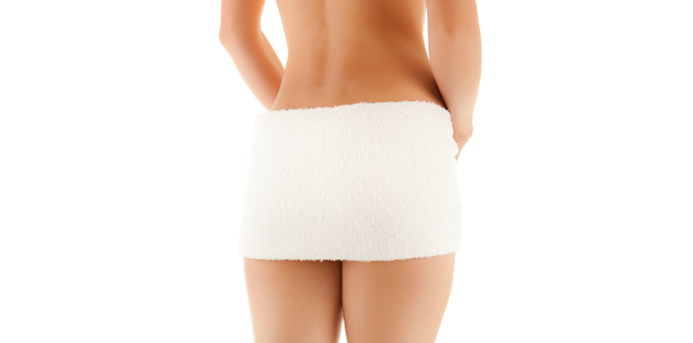Talking about how to care for your female parts is a sensitive subject, and it’s difficult to figure out what language to use.
Women have a complicated, multi-functional sexual anatomy that isn’t easily summed up by a single phrase. Even the term “vagina” doesn’t cut it, because technically, the vagina only describes the internal channel leading to the uterus. Everything on the outside is part of the vulva, and those two areas require different care. So, when I’m distinguishing between the vagina and vulva, I’ll use those anatomical terms. But when I’m referring to the combo, I’m going be less clinical.
The first thing to know is that your vagina is naturally clean and fresh. In fact, a healthy vagina is actually 10 times cleaner than the human mouth, according to Lissa Rankin, M.D., author of “What’s Up Down There? Questions You’d Only Ask Your Gynecologist if She Was Your Best Friend.” “The vagina is a self-cleaning organism,” Rankin says. “Shoving it full of things meant to make you smell like a bouquet of flowers does more harm than good by washing out the vagina’s normal bacteria, allowing bad bacteria to overpopulate the delicate environment and increasing the risk of vaginal infections.” So if you want a sparkling clean vagina, leave it alone!
Your vulva doesn’t need much washing either— and definitely not with soap. Stacy Lyon, developer of the new line of feminine care products Healthy Hoohoo says, “Most soaps and body washes are laden with harsh chemicals. You don’t want to have chemicals near the most absorbent part of the female body.” The worst culprits are products with fragrance. Also, soap is very alkaline, which can upset the protective pH balance of a woman’s naturally acidic vagina. If you’ve ever had problems with odor, abnormal discharge, itching or pain down there, an out-of-whack pH balance is probably to blame.
“Ultimately, we should just clean with plain water,” Lyon says. “But if you want to wash with something more, Healthy Hoohoo products are a healthier alternative.”
Lyon developed her line of products when she realized that paraben-free personal care products simply didn’t exist in the market. She hosted “hoohoo parties” as study groups and discovered that many women simply don’t know how to care for themselves. Now Healthy Hoohoo feminine wash, foaming cleanser and wipes are rolling out in Whole Foods stores and are available online atDrugstore.com and Amazon.com.
I tried the products and they’re clear, light, mild and fragrance-free—sort of like freshening up with sudsy rainwater. The wipes are great for a quick touch up after workouts or sex. Lyon says the best comment she hears from women who use Healthy Hoohoo is that they just don’t have to think about what’s going on down there anymore—which is how it’s meant to be.
Lyon offers up these practical tips for keeping your lady parts in good working order. “We look at this holistically,” she says. “A lot of disruption down there can be handled naturally by making a few changes in routines.”
Here are some good habits to follow:
- PANTIES: Wear 100-percent cotton during the day, limit the use of thongs (the seesaw movement of that thin fabric strip spreads bad bacteria around), and go bare at night to let air circulate.
- DIET: Drink lots of water, eat fresh fruits and veggies, eat yogurt (probiotics) and limit sugar intake.
- SEX: If you have problems, use condoms (sperm is very alkaline!) and pee after having sex.
- CLEANING: Wash sparingly, front to back, with water and a mild cleanser.
- AVOID: Douches, bubble bath, soaps, body washes, perfume sprays or anything scented.
- EXERCISE: Exercise regularly, but make sure to change out of wet bathing suits or sweaty workout clothes right away; they’re breeding grounds for bacteria.
All this information is making me rethink that Lifesaver trick. Also, that I need some new cotton underwear.

